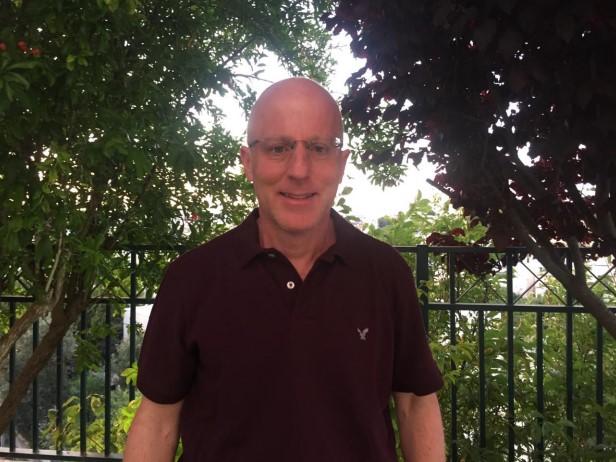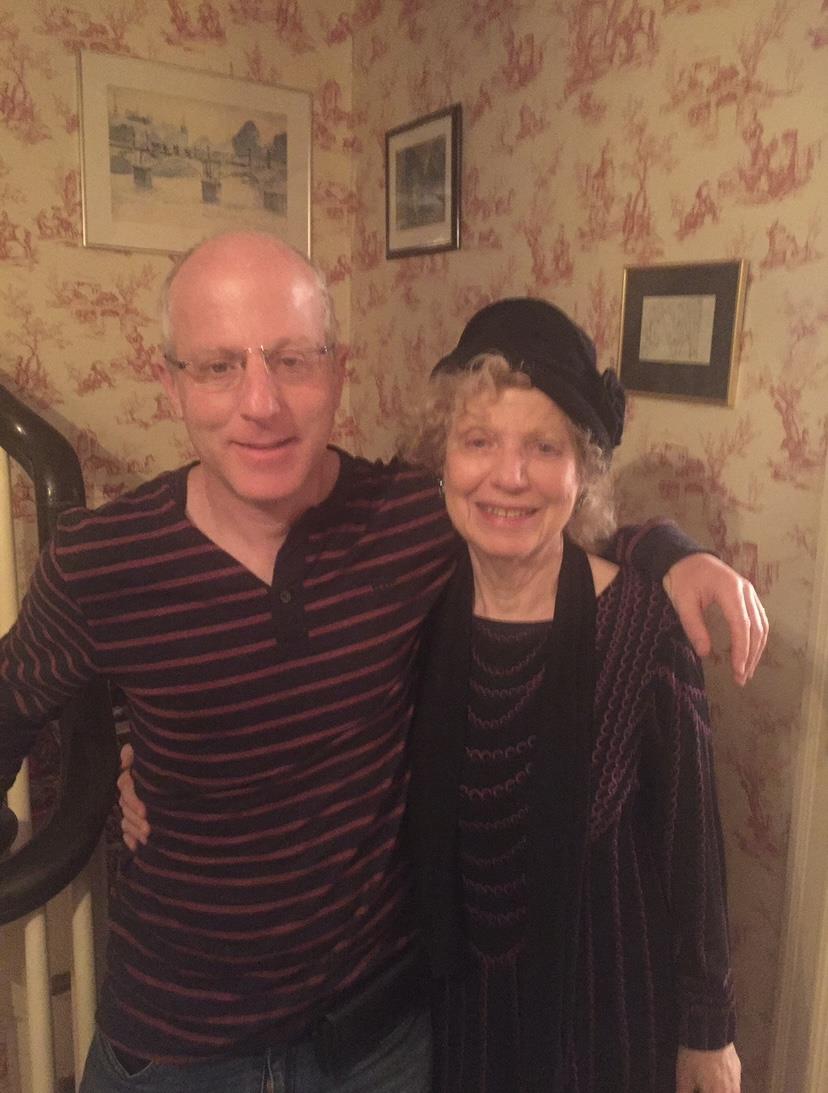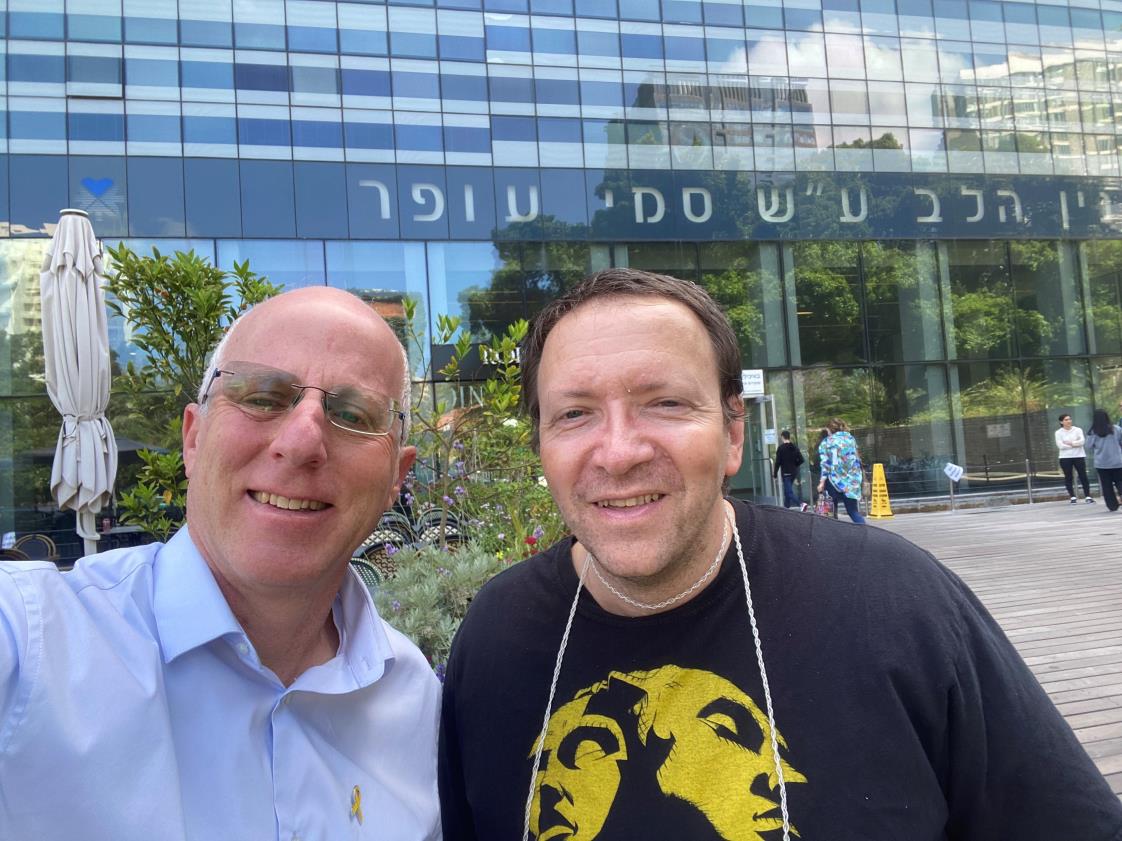 Mitchell J. Schwaber, M.D.`91
Mitchell J. Schwaber, M.D.`91
In March 2024, Mitchell Schwaber, M.D. ’91, donated one of his kidneys to a fellow Israeli, whom he did not know. Months later, Dr. Schwaber is feeling fine, as is the fortunate man who received the kidney.
Selfless service to others is a Schwaber family tradition that goes way back. Dr. Schwaber’s mother, Evelyne Schwaber, M.D. ’59—one of just three women in Einstein’s first graduating class—went on to become a psychiatrist-psychoanalyst and an expert in analytic listening as it applies to caregivers and patients. The family has supported Einstein’s Ruth L. Gottesman Clinical Skills Center, the Wilf Cardiovascular Research Institute, student scholarships, Einstein’s academic exchange program in Israel, and the Evelyne Albrecht Schwaber Listening and Communications Award.
Continuing the family tradition of mending the world, Dr. Mitchell Schwaber serves as director of the National Center for Infection Control of the Israel Ministry of Health and was a first responder with the Israel Defense Forces Medical Corps after the 2010 Haiti earthquake. He is a regular blood donor, is listed in the National Marrow Donor Program registry, and has now literally offered more of himself than ever before.
 Dr. Schwaber and his mother, Evelyne A. Schwaber, MD ‘59
Dr. Schwaber and his mother, Evelyne A. Schwaber, MD ‘59
Dr. Schwaber decided to donate a kidney after hearing about Matnat Chaim, an established nonprofit whose mission is to find kidney donors. “Matnat Chaim” translates as “gift of life,” and donating a kidney truly is that. Through his work at the Ministry of Health and as a senior physician in internal medicine and infectious diseases at Tel Aviv Sourasky Medical Center and Maccabi Healthcare Services, “I’ve seen how much of a burden dialysis is on quality of life for the patient and family members,” says Dr. Schwaber. “And on duration of life as well—people with chronic kidney failure who are dialysis dependent have shorter life expectancies than people who are not.”
Proceeding With Care
To ensure he was an appropriate candidate, Dr. Schwaber went through a months-long process of intensive physical testing and emotional screening. The physical part posed little problem—Dr. Schwaber is a distance runner in good health. But “potential donors have to make sure that their partner is on board,” he says. “So I had to get my wife’s approval. I’m used to half marathons and had the goal, with my running buddies, to run a full marathon in honor of my 60th birthday.
My wife was not enthusiastic about that plan. So we decided that if I were to go through with the kidney transplant, I’d forgo the full marathon. I thought that was fair.”
Preparing for the kidney donation involved a negotiation not just with his wife but with himself. “The process was scary,” says Dr. Schwaber. “By nature I’m not overly brave. I don’t like extreme activities. I’m scared of roller coasters. I don’t do bungees. I had to push myself to do it.” He reasoned thus: As a scientist, he knew the statistics predicted a good outcome. As a person of faith, he drew strength from belief and prayer. He was ever aware that there was a person in need on the receiving end. And as a physician and educator—he is a professor of medicine at the Tel Aviv University Faculty of Medical & Health Sciences—he felt that his example might encourage other potential donors to proceed. The war that broke out in October 2023 gave him the last bit of motivation he needed. “I saw people giving up their personal safety to go fight on the front lines,” says Dr. Schwaber. “Some weren’t coming back. There was a big value placed on sacrifice, on putting the general welfare of society above one’s own individual interest. In addition, performing an act of giving at this time was for me an antidote of sorts to the hatred, violence, and loss that have been so much a part of our landscape since October 7.”
Dr. Schwaber went under the knife in March 2024. The nephrectomy took about three hours, and he spent four additional days in the hospital before being released. In the first days, he was sore and “100 percent aware 100 percent of the time that I had undergone a kidney donation,” he says. But two months out, he was jogging again. His donated kidney is functioning beautifully in a man named Tomer from nearby Holon, whom he met after the operation.
 Dr. Schwaber and his kidney recipient, Tomer
Dr. Schwaber and his kidney recipient, Tomer
Onward
Donating a kidney involved serious abdominal surgery and weeks of recovery, but “I don’t have any regrets,” says Dr. Schwaber. He has no more kidneys to donate, but should he face a similar situation in the future, he hopes he will again be able to step up in whatever way he can. “Inasmuch as my faith is an integral part of my identity, it plays a role in all that I do,” says Dr. Schwaber. “My decision to donate a kidney fell into the category of major life decisions, such as making Aliyah or becoming a doctor, where the operative question for me was not ‘What do I want to do?’ but rather ‘What should I do?’”
Dr. Schwaber’s selfless act of kindness represents the best of Einstein alumni, and we feel confident he will continue to hear the relevant questions, listen for the answers, and find the strength to act, and serve as a brave example for us all.